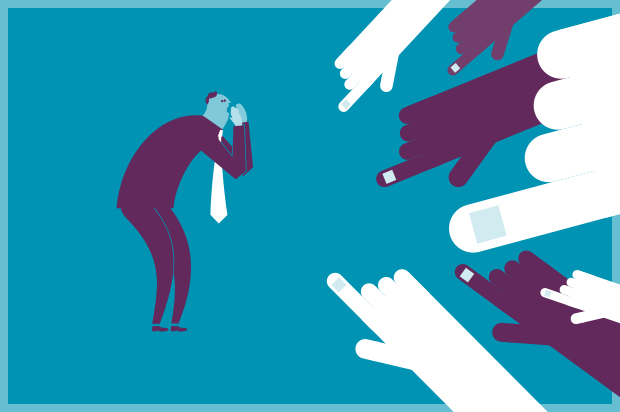In a development that might have been purpose-built to illustrate the subject of his new book, author Jon Ronson has become the target of a Twitter-based shaming campaign.
The Internet is not the real world? My tiny shaming yesterday meant I had three hours sleep coz of anxiety. Imagine poor Sue Perkins.
— jonronson (@jonronson) April 14, 2015
At issue is a passage concerning rape that Ronson cut from the final version of “So You’ve Been Publicly Shamed.” One of the author’s sources, a female member of the infamous message board 4Chan, told him, “4chan aims to degrade the target, right? And one of the highest degradations for women in our culture is rape. We don’t talk about rape of men, so I think it doesn’t occur to most people as a male degradation. With men, they talk about getting them fired. In our society men are supposed to be employed. If they’re fired, they lose masculinity points.”
Struck, Ronson contemplates this idea for a while before deciding, “I don’t know if Mercedes was right, but I do know this: I can’t think of many worse things than getting fired.” Although he never endorses the equivalence his source draws between the two threats, Ronson eventually removed the passage from the book after “people I really respect said I was wrong to have that line in there.” (You can find a full account of this decision here.)
Nevertheless, due to the quaint practices of print publishing, the passage was released into the semi-wild in the form of galleys, or an ARC, as such objects are also known. An ARC (advance reader’s copy) looks like a paperback edition of the forthcoming title, except for the warning emblazoned on the back stating that it’s not the final version of the book and should not be quoted as such. ARCs are printed from an early draft of the book so that booksellers and media folk have a chance to read it before its publication date.
Most ARCs don’t differ that much from the final book, although every critic has a story about how a drastic last-minute change forced him or her to rewrite a review. Ronson’s is one of the rarer cases in which the author got stung. A New York freelancer named Meredith Haggerty photographed and tweeted the page of the ARC containing part of the passage in question (although the quote from Mercedes that actually drew the comparison between the two types of threats was cut off, obscuring the source of that idea). Haggerty also missed the bit about the ARC not being the final version of the book.
A Twitter storm of indictments and defenses of Ronson ensued. Not surprisingly, people who engage in vigorous social-media shaming aren’t crazy about Ronson’s book in the first place, and even if it took a bit of willful misreading and misrepresentation, the chance to castigate a critic of on-line pile-ons proved irresistible. Even the news that the offending passage had been cut from the published version of the book only moderated the retorts to a version of “Well, you should never have thought or written such a thing at all.”
Before we launch into hysterics over what sort of literature we’d get if writers were afraid to commit mistakes in their preliminary drafts, it helps to remember that it’s only Twitter. Anyone can say anything about anyone in that venue and, short of actual threats, their remarks, insults or accusations will remain online. That’s not going to stop. What can change is how seriously any of us takes this stuff, who we listen and respond to and who, ultimately, we decide does not deserve that consideration.

